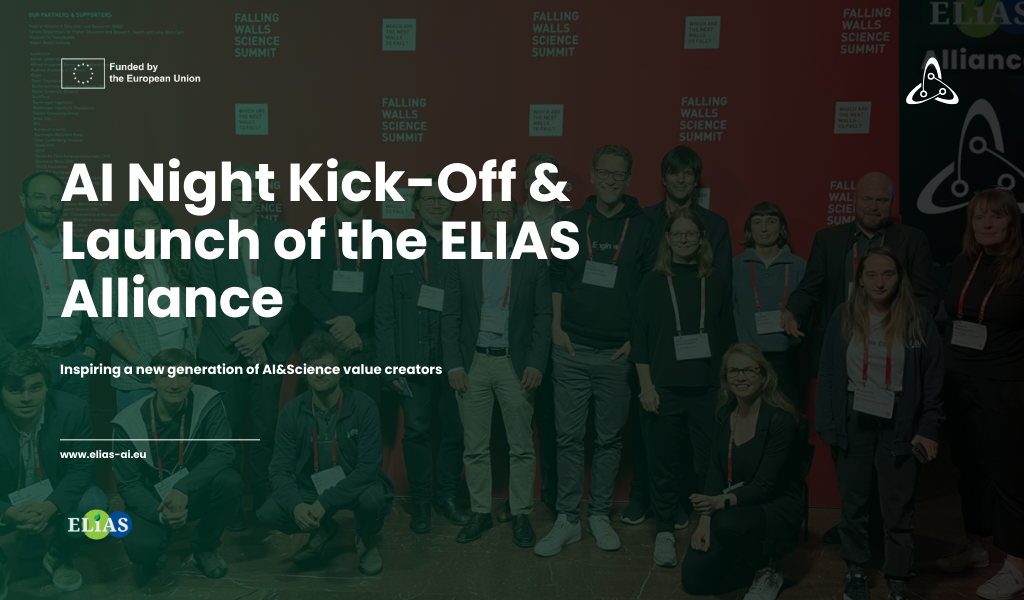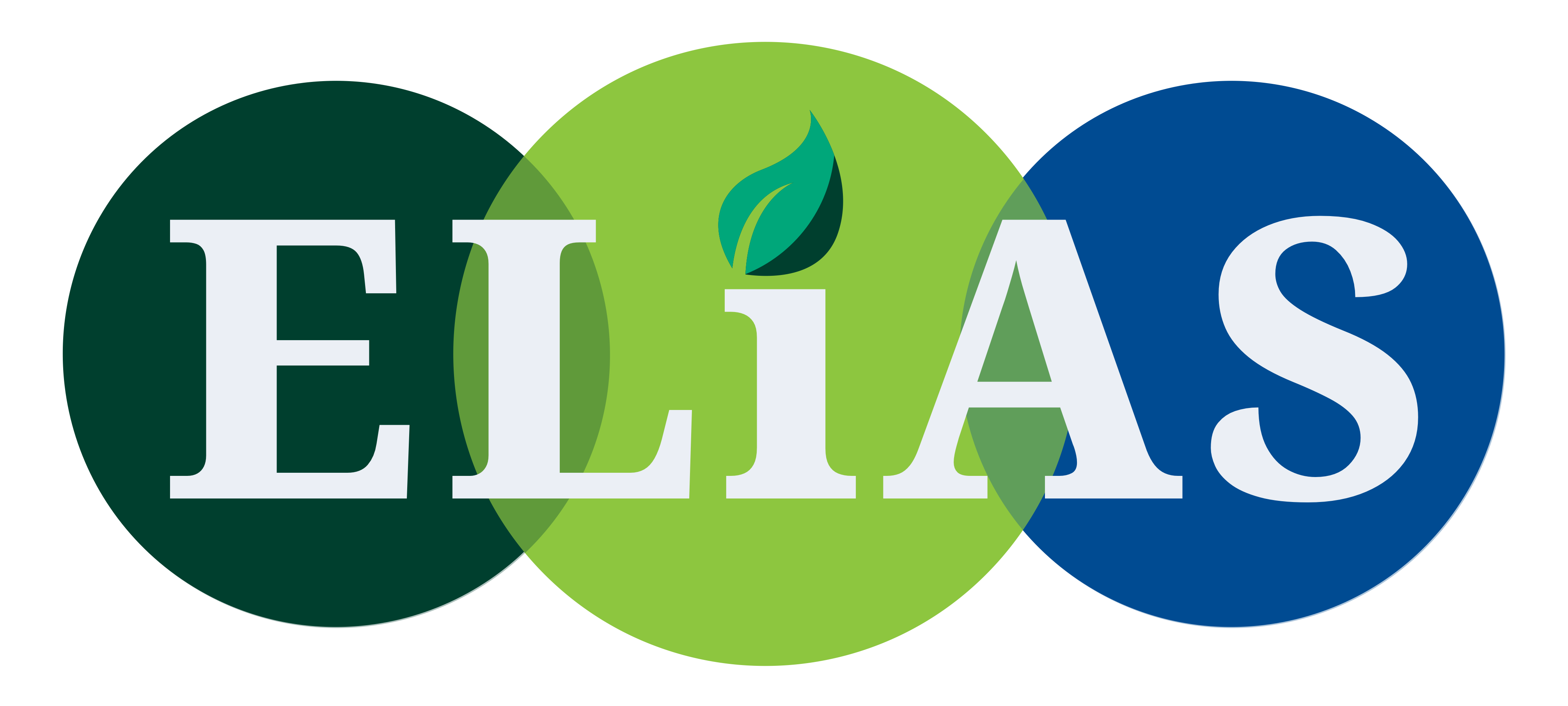Explore the Alliance
About
ELIAS Nodes
News
Pioneering AI Innovation and Entrepreneurship in Europe for a Sustainable Future

The ELIAS Alliance, together with its 8 established nodes across 5 countries, aims to solidify European leadership in AI-driven innovation and scientific advancement. The ELIAS nodes are strategically designed to recognise and amplify locally developed AI and science-based innovations, while acting as integral parts of the ELIAS Alliance—a pan-European network fostering AI entrepreneurship. This initiative closely collaborates with ELLIS, the European Laboratory for Learning and Intelligent Systems, to build a robust foundation for sustainable, European-centred AI advancement.
As part of the ELIAS Alliance, each node serves as a bridge between academia and industry, enhancing academic education focused on open-source foundation model development. This network dedicates itself to creating European value through AI innovation and aims to embed value-creation literacy within academic curricula. Additionally, the nodes support researchers in their entrepreneurial ventures and facilitate contributions to the development of open-source foundation models.
To support this mission, ELIAS will introduce a European MSc Graduation Project Programme and host an annual Sciencepreneur Meeting. These initiatives strengthen access to entrepreneurial resources, promote knowledge exchange, and establish European thought leadership in AI value creation. Through these efforts, ELIAS commits to fostering a vibrant ecosystem of talent and innovation that champions AI “made in Europe”.
Nodes
Countries
European Leadership in Innovation with AI and Science
ELIAS NODES
Amsterdam, the Netherlands
The ELIAS Node Amsterdam acts as a key initiator and facilitator of impactful AI-preneurial collaborations, establishing itself as a vital local touchpoint of the ELIAS Alliance. It aims to serve as a dynamic catalyst for AI-preneurial innovation, driving collaborative efforts that inspire fresh new ideas and innovative solutions.
Barcelona, Spain
The ELIAS Node Barcelona serves as a strategic hub for driving knowledge transfer in Catalonia and beyond. It creates opportunities for collaborations across Europe, bolsters local initiatives, and enables the adoption of new practices from other nodes, thereby enhancing the overall impact.
Cambridge, United Kingdom
The ELIAS Node Cambridge connects Cambridge’s world-class innovation ecosystem with the frontiers of AI, driving innovation in AI that serves science, citizens, and society. By collaborating across the Cambridge ecosystem, the node convenes networks across the academic, startup, and VC communities.
Copenhagen, Denmark
The ELIAS Node Copenhagen brings together partners with complementary competencies essential for integrating computer science into relevant solutions and achievements. This node plays a central role in a dynamic ecosystem focused on AI, fostering innovation and collaboration among stakeholders.
Munich, Germany
ELLIS Munich, a key member since 2020, aims to bridge research and industry by fostering collaborations, internships, and spin-offs. As an ELIAS Node, it leverages Munich’s growing AI ecosystem, creating an end-to-end process linking stakeholders. The goal is to strengthen connections and advance AI innovation, driving European leadership in the field.
Potsdam, Germany
The HPI Engine dedicates itself to fostering innovation based on digital technologies. As an established ELIAS Node, it supports students, researchers, and startups in developing technological solutions with societal impact through hands-on mentorship, educational programmes, and collaboration across the European ecosystem.
Tübingen, Germany
The ELIAS Node Tübingen brings together a critical mass of researchers and entrepreneurs to actively engage in pioneering original ideas for thought leadership on value creation and how innovation can reliably contribute to a healthy planet, empowering institutions and individuals to rethink civilisation and economic innovation in sustainable ways.
Zurich, Switzerland
The ELIAS Node Zurich serves as the ETH AI Center’s entrepreneurship hub, actively supporting AI ventures through various stages of development. It offers programmes that assist entrepreneurs in refining AI solutions, connecting with industry partners, and bringing innovations to market. The node aims to foster a thriving ecosystem for AI-preneurship.
News and Updates
Alliance News: Advancing European AI and Sustainability
Discover the latest from the ELIAS Alliance as we lead AI innovation across Europe. This section highlights news on projects, collaborations, and events from our ELIAS Nodes, all focused on creating impactful, sustainable AI. Stay tuned for updates on groundbreaking research, open-source initiatives, and our commitment to fostering “AI made in Europe”.
News
Opportunities
Events

ELIAS Nodes have been presented to the public during the Falling Walls Event in Berlin, Germany
Press Release: ELIAS Alliance Launch ELIAS Nodes have been presented to the public during the Falling Walls Event in Berlin, Germany Berlin, Germany - November 8, 2024 Inspiring a new generation of AI&Science value creators The ELIAS Alliance for European Leadership in Innovation with AI...
AI-preneurship Day
Are you a BSc/MSc student, PhD candidate, or Postdoc working in AI—and curious about entrepreneurship? Ever wondered whether your research could grow into a real business? On Thursday, 5 March 2026, we’re hosting AI‑preneurship Day at LAB42, University of Amsterdam. Starting at 12:00, this free,...

